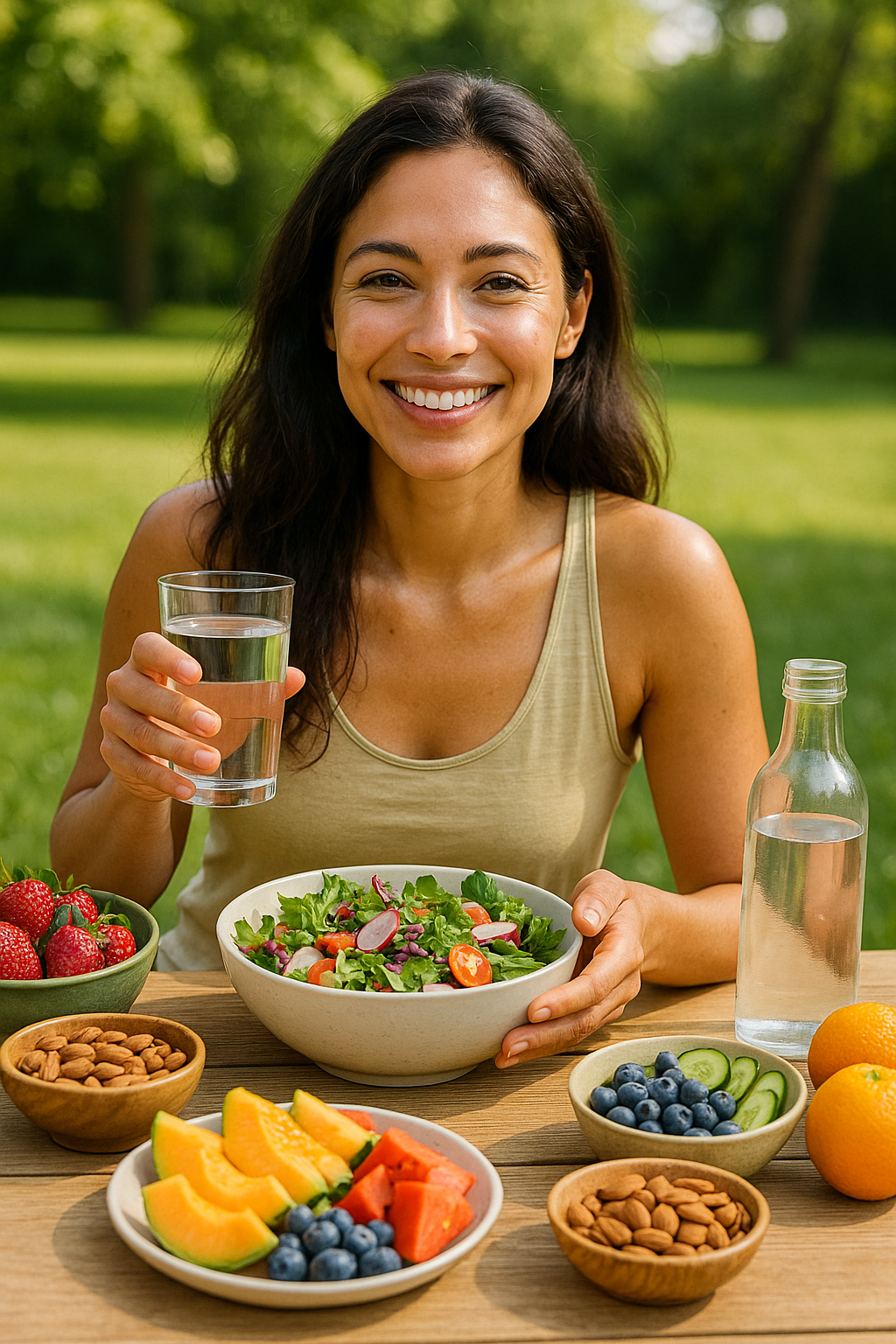When it comes to skincare, most of us focus on the external — cleansers, serums, masks, and moisturizers. But what you put on your skin is only half the story. What you put into your body plays an equally important, if not greater, role in the health and appearance of your skin.
Your skin is the largest organ in your body, and it reflects your internal health. Certain foods can promote inflammation, trigger breakouts, or accelerate aging, while others can hydrate, protect, and even heal your skin from the inside out.
In this article, you’ll learn:
- How your diet affects skin health
- Which nutrients and foods are skin-friendly
- What to avoid for clearer skin
- Meal and snack ideas to support your glow
- Tips for maintaining a skin-friendly diet long-term
How Food Impacts Skin Health
Your digestive system and skin are closely connected. Nutrients from food are delivered through the bloodstream and absorbed by skin cells. This means the quality and balance of your diet can:
- Influence oil production
- Support collagen formation
- Reduce (or increase) inflammation
- Improve skin barrier function
- Affect skin tone and texture
When you fuel your body well, your skin becomes more resilient, hydrated, and radiant.
Top Skin-Loving Nutrients and Where to Find Them
🧴 1. Vitamin C
Essential for collagen synthesis, brightening, and healing.
Best sources:
- Citrus fruits (oranges, lemons)
- Strawberries
- Bell peppers
- Kiwi
- Broccoli
🧴 2. Vitamin A
Supports skin renewal and helps prevent acne and dryness.
Best sources:
- Carrots
- Sweet potatoes
- Spinach
- Kale
- Mangoes
🧴 3. Vitamin E
A powerful antioxidant that protects the skin from oxidative stress.
Best sources:
- Almonds
- Sunflower seeds
- Avocados
- Olive oil
🧴 4. Zinc
Reduces inflammation, helps with wound healing, and can manage acne.
Best sources:
- Pumpkin seeds
- Chickpeas
- Lentils
- Cashews
- Whole grains
🧴 5. Omega-3 Fatty Acids
Reduces inflammation and keeps skin moisturized.
Best sources:
- Salmon
- Sardines
- Chia seeds
- Flaxseeds
- Walnuts
🧴 6. Protein
Essential for collagen, elastin, and overall skin structure.
Best sources:
- Eggs
- Chicken
- Lentils
- Tofu
- Quinoa
💧 7. Water
Hydration is key to plump, clear, and elastic skin. Dehydration can make the skin look dry, flaky, and more prone to fine lines.
Best practices:
- Drink 6–8 glasses of water daily
- Include water-rich foods like cucumbers, oranges, and watermelon
Foods That Can Trigger Skin Issues
❌ 1. Excess Sugar
High sugar levels spike insulin, which increases oil production and inflammation — both major triggers for acne and dull skin.
Watch out for:
- Sodas and sweetened beverages
- Candy and pastries
- Highly processed snacks
❌ 2. Dairy (for Some People)
Some studies suggest a link between dairy (especially skim milk) and acne due to hormone content.
If you notice breakouts after consuming dairy, try replacing with:
- Almond milk
- Oat milk
- Coconut-based yogurt
❌ 3. Fried and Greasy Foods
These increase inflammation and may worsen conditions like acne and rosacea.
Limit:
- Fast food
- Potato chips
- Greasy meats
❌ 4. High-Glycemic Carbs
Refined carbs can trigger breakouts and inflammation.
Avoid or limit:
- White bread
- White rice
- Sugary cereals
- Instant noodles
A Day of Skin-Loving Meals
🥣 Breakfast:
- Oatmeal with chia seeds, banana, and a spoonful of almond butter
- Green tea or warm lemon water
💡 Rich in fiber, omega-3s, and antioxidants
🥗 Lunch:
- Grilled salmon salad with avocado, cherry tomatoes, olive oil dressing
- Quinoa or sweet potato on the side
💡 Anti-inflammatory, hydrating, and protein-packed
🍎 Snack:
- Handful of walnuts or pumpkin seeds
- Carrot and cucumber sticks
- Berry smoothie with coconut milk
🍲 Dinner:
- Stir-fried tofu or lentils with spinach, bell peppers, garlic, and turmeric
- Brown rice or cauliflower rice
💡 Full of plant-based nutrients, zinc, and antioxidants
Hydration Tips for Healthy Skin
- Start your day with a full glass of water
- Keep a refillable bottle with you
- Drink herbal teas (like chamomile or peppermint)
- Eat water-dense fruits: watermelon, cucumber, strawberries
- Avoid too much coffee or alcohol (they’re dehydrating)
Supplements: Should You Take Them?
Supplements can help if you’re deficient, but they aren’t a replacement for real food.
💊 Consider (after consulting a doctor):
- Vitamin D (especially in winter)
- Omega-3s (if you don’t eat fish)
- Collagen peptides
- Zinc or iron (if tests show low levels)
Food Sensitivities and Skin
Sometimes, a food intolerance can show up through your skin.
Signs include:
- Breakouts
- Eczema or rash
- Puffiness or dark under-eye circles
If you suspect a trigger food:
- Keep a food + skin diary
- Try an elimination diet
- Talk to a registered dietitian
Quick Tips to Eat for Better Skin
- Add a handful of berries to your breakfast daily
- Use olive oil instead of butter for cooking
- Choose brown rice over white rice
- Add greens to every meal — even smoothies
- Choose nuts or seeds as snacks over processed food
Final Thoughts: Glow from the Inside Out
The phrase “you are what you eat” may sound cliché, but when it comes to your skin, it’s absolutely true. Clear, vibrant skin starts on your plate — not just in your skincare drawer.
By focusing on whole, nutrient-dense foods, staying hydrated, and cutting back on inflammatory ingredients, you give your skin the foundation it needs to stay smooth, strong, and glowing.
So next time you reach for a snack, ask yourself: “Will this feed my glow?” Your skin will answer you soon enough.
